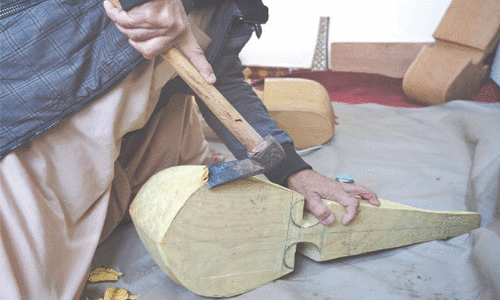HARARE, July 2: Zimbabwe’s opposition leader on Wednesday rejected calls to form a national unity government, saying it would not solve the country’s crisis after Robert Mugabe’s widely condemned one-man election.
Speaking the day after an African Union summit called for a unity government, Morgan Tsvangirai said it would merely accommodate Mugabe after much of the world had labelled his regime illegitimate.
“A government of national unity does not address the problems facing Zimbabwe or acknowledge the will of the Zimbabwean people,” Tsvangirai told reporters.
“The resolution does not recognise the illegitimacy of the June 27 election and the fact that most African leaders refused to recognise Mugabe as head of state.” The Movement for Democratic Change leader added that it does not acknowledge “that the MDC, as the winner of the last credible election, on March 29, should be recognised as legitimate government of Zimbabwe.” Tsvangirai defeated Mugabe in the first round of the presidential election in March, but official vote totals showed him just short of an outright majority.
The opposition leader subsequently pulled out of last Friday’s run-off, saying nearly 90 of his supporters had been killed and thousands injured in violence he blamed on pro-Mugabe militia.
His comments on Wednesday came after Mugabe’s regime hailed the AU resolution, describing it as an echo of the 84-year-old leader’s call for dialogue.
“Government is ready for dialogue with whoever, a dialogue for national unity in Zimbabwe,” Information Minister Sikhanyiso Ndlovu said.
International pressure on Mugabe has mounted, with the European Union repeating on Wednesday that Tsvangirai must be head of any new government, despite South African President Thabo Mbeki warning against imposing a solution from the outside.
Mbeki, chief mediator for Zimbabwe, said it was not for outsiders to dictate the composition of a government that will have to deal with the world’s highest inflation rate and widespread food shortages.
The Zimbabwe crisis dominated the AU summit in the Egyptian resort of Sharm el-Sheikh, following Mugabe’s re-election by a landslide in the one-man poll decried as a farce by Western governments.
While neighbouring Botswana called for Zimbabwe to be suspended from both the AU and the 14-nation Southern African Development Community (SADC), the summit ultimately ended with a relatively bland call for Mugabe and Tsvangirai “to initiate dialogue”.
The gathering, held amid mounting Western calls for sanctions, also decided “to support the call for the creation of a government of national unity”.
On Wednesday, Tsvangirai said his party was committed to negotiations but that they should be on the basis of finding a transitional agreement “leading to elections.” He has previously held out the possibility of Mugabe remaining as a ceremonial head of state under a rewritten constitution, but there is deep scepticism about the possibilities of a deal between the two arch rivals.
Senegal’s President Abdoulaye Wade said his Zimbabwean counterpart had snubbed the idea of sharing power with the MDC after it was floated by Mbeki in closed-door talks at the summit.
“He (Mugabe) told me this is not possible, that he has his supporters,” said Wade. “I reminded him that the MDC is a real force and that if a prime minister had to be chosen by his level of representation, it could only be
Tsvangirai.” Analysts have said that while Tsvangirai’s withdrawal from the election intensified criticism of Mugabe, the opposition will likely be forced to negotiate with the veteran leader or face being sidelined.
Takura Zhangazha, director of the Media Institute of Southern Africa, said on Wednesday the MDC’s position “has to be very clear to the people of Zimbabwe.” ”The question is will they participate in local government, parliamentary, or senatorial and activities?” he said.
“That is a critical point and if they are not clear, Mugabe and his government will use that to their advantage to divide them.”—AFP














































Dear visitor, the comments section is undergoing an overhaul and will return soon.